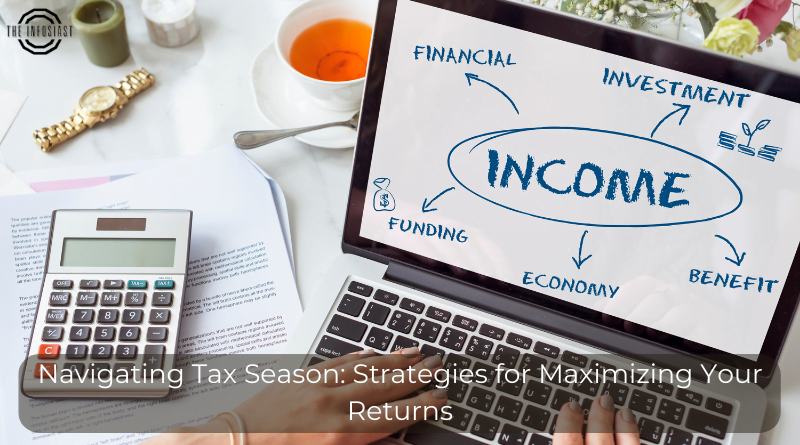
Tax season can be a daunting time for many individuals and businesses. It’s a period of gathering financial documents, filling out forms, and ensuring compliance with tax laws. However, with the right strategies in place, you can navigate tax season with confidence and maximize your returns. In this article, we will explore effective strategies and tips to help you make the most of this tax season.
Start Early and Stay Organized
One of the key strategies for a smooth tax season is to start early and stay organized. Begin by gathering all the necessary financial documents such as W-2 forms, 1099 forms, receipts, and statements. Create a system to keep these documents organized throughout the year, making it easier to find and compile the required information when tax season arrives.
Understand Your Deductions and Credits
Deductions and credits can significantly impact your tax liability. Take the time to understand the deductions and credits available to you. Common deductions include mortgage interest, student loan interest, medical expenses, and charitable contributions. Additionally, be aware of any tax credits for which you may be eligible, such as the Earned Income Tax Credit or Child Tax Credit.
Maximize Retirement Contributions
Contributing to retirement accounts not only helps secure your financial future but can also provide tax benefits. Consider maximizing your contributions to retirement plans such as 401(k)s, IRAs, or self-employed retirement plans. These contributions may be tax-deductible or grow tax-free, reducing your taxable income or deferring taxes until retirement.
Take Advantage of Tax-Advantaged Accounts
In addition to retirement accounts, explore other tax-advantaged accounts that can help lower your tax liability. Health Savings Accounts (HSAs), Flexible Spending Accounts (FSAs), and Education Savings Accounts (ESAs) offer tax benefits when used for qualified medical, childcare, or educational expenses. Evaluate your eligibility for these accounts and take advantage of the tax savings they provide.
Consult with a Tax Professional
Tax laws and regulations can be complex, and navigating them effectively may require professional assistance. Consider consulting with a qualified tax professional who can provide expert advice tailored to your specific situation. They can help identify potential deductions, ensure compliance, and maximize your tax savings.
Stay Informed about Tax Law Changes
Tax laws are subject to change, and staying informed about any updates or revisions is crucial. Keep up-to-date with changes in tax laws and regulations that may impact your tax situation. IRS publications, tax news websites, and reliable resources can help you stay informed and make informed decisions.
Utilize Tax Software or Online Services
Tax software and online services can simplify the tax preparation process and help you accurately complete your returns. These tools often provide step-by-step guidance, ensure calculations are accurate, and may offer additional features such as access to tax professionals or audit support. Explore different options and choose a reputable tax software or online service that suits your needs.
Review and Double-Check Your Returns
Before submitting your tax returns, review and double-check all the information to ensure accuracy. Mistakes or omissions can lead to delays, penalties, or unnecessary audits. Take the time to carefully review each section of your tax returns, verifying that all numbers are correct and all required fields are completed.
Tax season doesn’t have to be overwhelming. By implementing these strategies, you can navigate tax season with confidence and maximize your returns. Starting early, staying organized, understanding deductions and credits, and consulting with professionals are all essential steps to ensure a smooth and successful tax season. Stay informed, utilize available resources, and make the most of the opportunities to reduce your tax liability. With careful planning and attention to detail, you can make tax season a rewarding experience.



